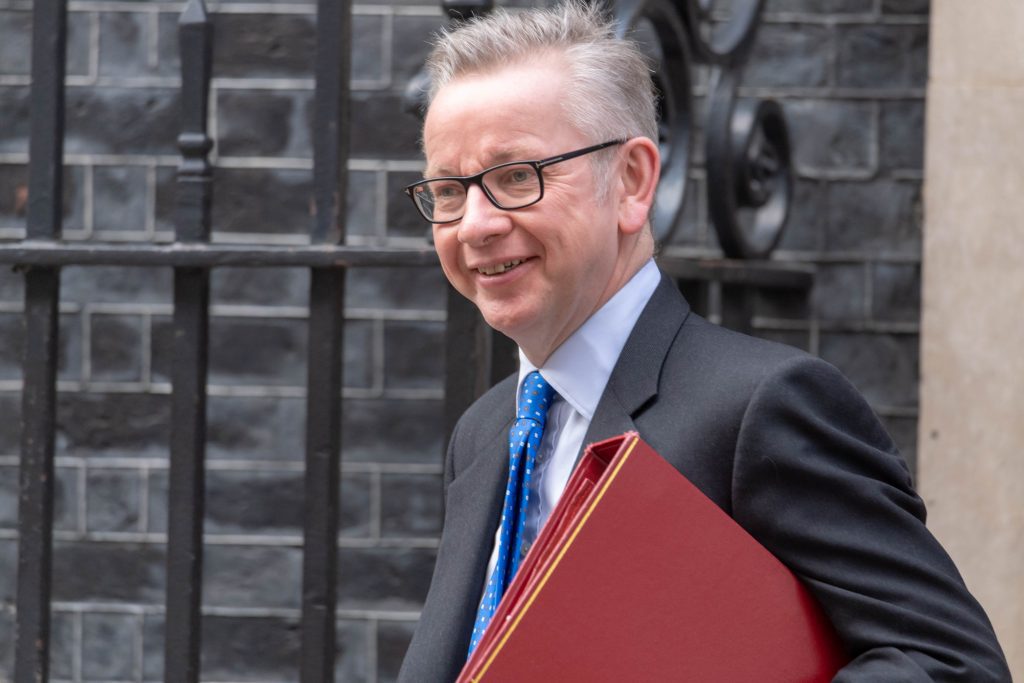Prime Minister Rishi Sunak has pledged to build one million homes and so fulfil a manifesto commitment, with a focus on urban development, but it’s a package humming with deja vu.
In what amounts almost to a double act with housing secretary Michael Gove, the two men are reiterating the government’s commitment to home ownership, with a raft of measures it is claimed will boost delivery.
The focus is on inner city development, where demand is highest, rather then on “concreting over the countryside” as both Sunak and Gove take pains to emphasise; a clear nod to potential Conservative backbench misgivings.
Under the proposals, the government will introduce “new flexibilities” to convert shops, takeaways, and betting shops into homes. It’s claimed this will help to rejuvenate high streets.
Meanwhile “red tape” will be slashed to enable barn conversions and the repurposing of agricultural buildings and disused warehouses.
Existing permitted development rights are to be reviewed, with the aim to make it easier for homeowners to “build upwards and outwards” through new “freedoms” to build extensions and convert lofts.
The prime minister said: “Today, I can confirm that we will meet our manifesto commitment to build one million homes over this Parliament. That’s a beautiful new home for a million individual families in every corner of our country.
“We need to keep going because we want more people to realise the dream of owning their own home.
“We won’t do that by concreting over the countryside – our plan is to build the right homes where there is the most need and where there is local support, in the heart of Britain’s great cities.
“Our reforms today will help make that a reality, by regenerating disused brownfield land, streamlining planning process and helping homeowners to renovate and extend their houses outwards and upwards.”
Gove’s speech set out measures to “unblock” the planning system.
Key features of the package include:
- The immediate launch of a £24m Planning Skills Delivery Fund to clear backlogs and get the “right skills in place”
- Setting up a new ‘super-squad’ team of leading planners and other experts. They will be charged with working across the planning system to unblock major housing developments
- Developers will also be asked to contribute more through fees, to help support a “higher quality more efficient” planning service
Community support is regarded as essential to make these pledges a reality, with the right infrastructure in place, and regard given to the aesthetics of a development.
To support that, the housing secretary also announced measures to engage local feeling, including:
- Office for Place: a new body launched today to lead, it is said, a “design revolution” and ensure local people have a say in how housing is designed
- A consultation on reforming local plans, to make them simpler, shorter and more visual, showing clearly what is planned in local areas so communities can engage


Gove said: “Most people agree that we need to build more homes – the question is how we go about it.
“[W]e have set out a plan today to build the right homes in the right places where there is community support – and we’re putting the resources behind it to help make this vision a reality.
“At the heart of this is making sure that we build beautiful and empower communities to have a say in the development in their area.”
Private interest
Developers and housebuilders have broadly welcomed both the prime minister’s pledge, and Gove’s proposals to boost development.
Ryan Shorthouse, chief executive of Bright Blue, said: “To give younger people from modest backgrounds a better chance of home ownership, we urgently need to build more homes in desirable parts of the country.
“The welcome measures announced today will help quicken and simplify the planning process, and are thus strong steps towards achieving greater and greener homes.
“But these policies are only the start of the major demand-side and supply-side reforms that are needed to the housing market to ensure more young people can enjoy the benefits of property ownership.”
Dean Finch, chief executive of Persimmon, said the reforms “will help hard-pressed people achieve their dream of affordable home ownership”.
What about social housing?
Not everyone is convinced by the government’s proposals, however.
Responding to Gove’s speech, the National Housing Federation called the proposals a “positive start” but one that is “nowhere near the scale or ambition that is needed”.
Rhys Moore, the organisation’s executive director of public impact, said: “We have a massive housing crisis on our hands with one in six children living in overcrowded homes and 4.2m people in need of social housing.
“We welcome the commitments to planning interventions, however this is relatively piece meal given the challenge we face.
“There is also nothing in this announcement about investing in social housing, which is sorely needed. We have a chronic shortage of social homes in this country, caused by decades of underinvestment by successive governments and this has exacerbated the rental crisis and increased house prices.
“Last year we only built around 6,500 social rented homes compared to the 90,000 a year that are needed. We need a strategic, nationally coordinated and properly funded long-term housing plan, focused on drastically increase social housing across the country, which this is not.”
Councillor Shaun Davies, chair of the Local Government Association, said: “There is no doubt that we need more homes as well as to reinvigorate our high streets and town centres.
“However, premises such as offices, barns, and shops are not always suitable for housing.
“Further expanding permitted development rights risks creating poor quality residential environments that negatively impact people’s health and wellbeing, as well as a lack of affordable housing or suitable infrastructure.”
Gavin Smart, CIH chief executive, said: “We welcome some of the measures announced today and the recognition that long term problems need long term solutions, but we would have liked to see a greater focus on much needed social housing.
“Analysis shows we need 90,000 new homes for social rent each year for the next 15 years but we’re a long way off delivering this.
“Without investment in social house building we’ll continue to see housing waiting lists grow and will continue to spend huge amounts of money subsidising poor quality housing.
“It’s time for a long-term cross cutting strategy, backed by government investment, focussed on delivering more homes in the right places that people can afford.
“Everyone should have access to a decent and affordable home from which to build their lives.”
Main image: Cubankite/Shutterstock
Read next: MPs to question shared ownership’s promise
Are you a social housing professional? Sign up for a FREE MEMBERSHIP to upload news stories, post job vacancies, and connect with colleagues on our secure social feed.



